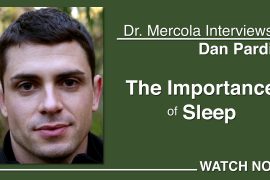Longing for a Good Night’s Sleep? Try These Tips
1. Keep Your Phone and Tablet Out of Your Bedroom
One of the greatest plights of modern-day sleep is the introduction of light-emitting electronic devices to the bedroom. Research shows that 90 percent of Americans use an electronic device within an hour of going to bed, and this is associated with poor sleep. A new study also compared the use of an iPad for 4 hours before bed (for five consecutive nights) to reading a print book for the same period. There were significant biological effects of iPad use before bed, including:
- Reduced secretion of melatonin, a hormone that induces sleepiness
- Delayed circadian rhythm of more than an hour
- Feeling less sleepy before bedtime
- Feeling sleepier and less alert the following morning, even after 8 hours of sleep
- Spending less time in REM sleep
One of the study’s authors noted: “We found the body’s natural circadian rhythms were interrupted by the short-wavelength enriched light, otherwise known as blue light, from these electronic devices.” The blue light emitted from electronics such as cell phones, tablets, TVs and computers suppresses your melatonin production, thereby preventing you from feeling sleepy. What you may not realize is that even if you don’t feel sleepy, you need sleep. You’ve simply artificially disrupted your body clock; you have not in any way altered your body’s biological needs. Last year I interviewed Dan Pardi on the topic of how to get restorative, health-promoting sleep.
Pardi is a researcher who works with the Behavioral Sciences Department at Stanford University and the Departments of Neurology and Endocrinology at Leiden University in the Netherlands.In addition to avoiding blue light at night, Pardi recommends getting at least 30-60 minutes of outdoor light exposure during daylight hours in order to “anchor” your master clock rhythm. The ideal time to go outdoors is right around solar noon but any time during daylight hours is useful. Once the sun has set, the converse applies. After sunset you want to avoid light as much as possible in order for your body to secrete melatonin, which helps you feel sleepy.
2. Avoid watching TV or using your computer in the evening, at least an hour or so before going to bed. These devices emit blue light, which tricks your brain into thinking it’s still daytime. Normally, your brain starts secreting melatonin between 9 pm and 10 pm, and these devices emit light that may stifle that process.
3. Make sure you get BRIGHT sun exposure regularly. Your pineal gland produces melatonin roughly in approximation to the contrast of bright sun exposure in the day and complete darkness at night. If you are in darkness all day long, it can’t appreciate the difference and will not optimize your melatonin production.
4. Sleep in complete darkness, or as close to it as possible. The slightest bit of light in your bedroom can disrupt your body’s clock and your pineal gland’s melatonin production. Even the tiniest glow from your clock radio could be interfering with your sleep, so cover your radio up at night or get rid of it altogether. Move all electrical devices at least three feet away from your bed. You may want to cover your windows with drapes or blackout shades. If this isn’t possible, wear an eye mask.
5. Install a low-wattage yellow, orange, or red light bulb if you need a source of light for navigation at night. Light in these bandwidths does not shut down melatonin production in the way that white and blue bandwidth light does. Salt lamps are handy for this purpose. You can also download a free application called F.lux that automatically dims your monitor or screens.
6. Keep the temperature in your bedroom no higher than 70 degrees F. Many people keep their homes too warm (particularly their upstairs bedrooms). Studies show that the optimal room temperature for sleep is between 60 to 68 degrees F.
6. Take a hot bath 90 to 120 minutes before bedtime. This increases your core body temperature, and when you get out of the bath it abruptly drops, signaling your body that you are ready to sleep.
7. Avoid using loud alarm clocks. Being jolted awake each morning can be very stressful. If you are regularly getting enough sleep, you might not even need an alarm.
8. Get some sun in the morning, if possible. Your circadian system needs bright light to reset itself. Ten to 15 minutes of morning sunlight will send a strong message to your internal clock that day has arrived, making it less likely to be confused by weaker light signals during the night. More sunlight exposure is required as you age.
9. Be mindful of electromagnetic fields (EMFs) in your bedroom. EMFs can disrupt your pineal gland and its melatonin production, and may have other negative biological effects as well. A gauss meter is required if you want to measure EMF levels in various areas of your home. Ideally, you should turn off any wireless router while you are sleeping. You don’t need the Internet on when you are asleep.
I know for sure finding those extra hours is not easy. But with a bit of planning you can do it!
Dr Mercola’s article has much more information than I could include so please check the full article here
Source: mercola.com



